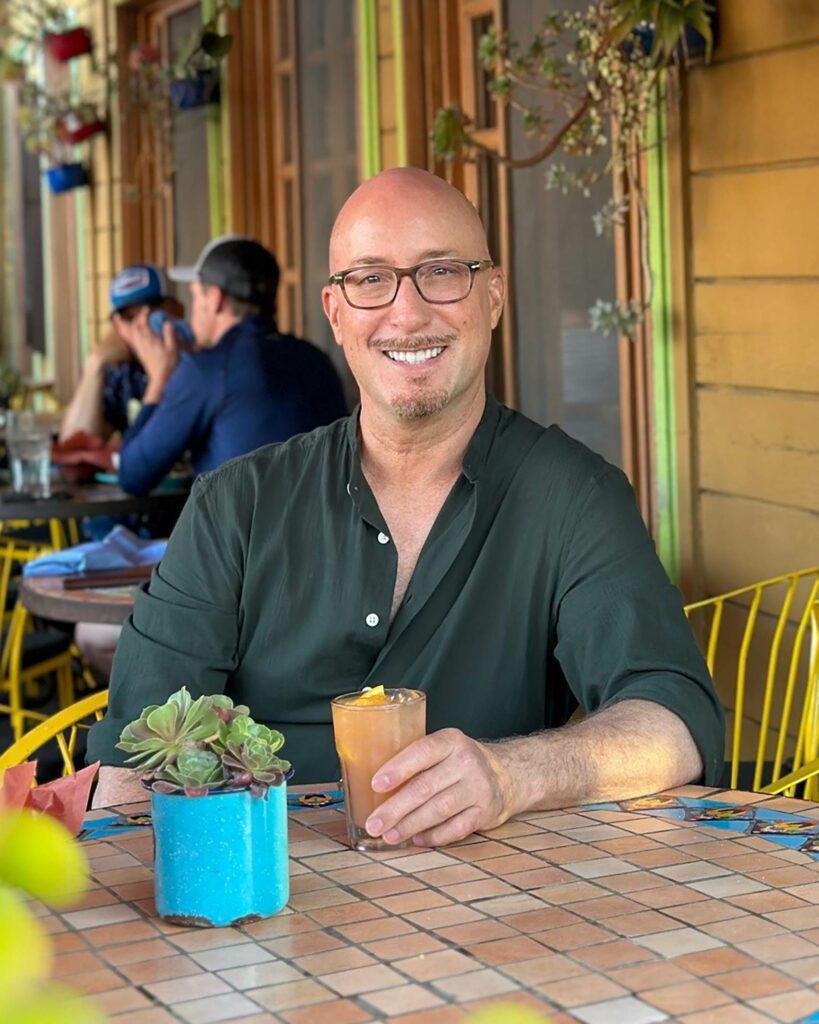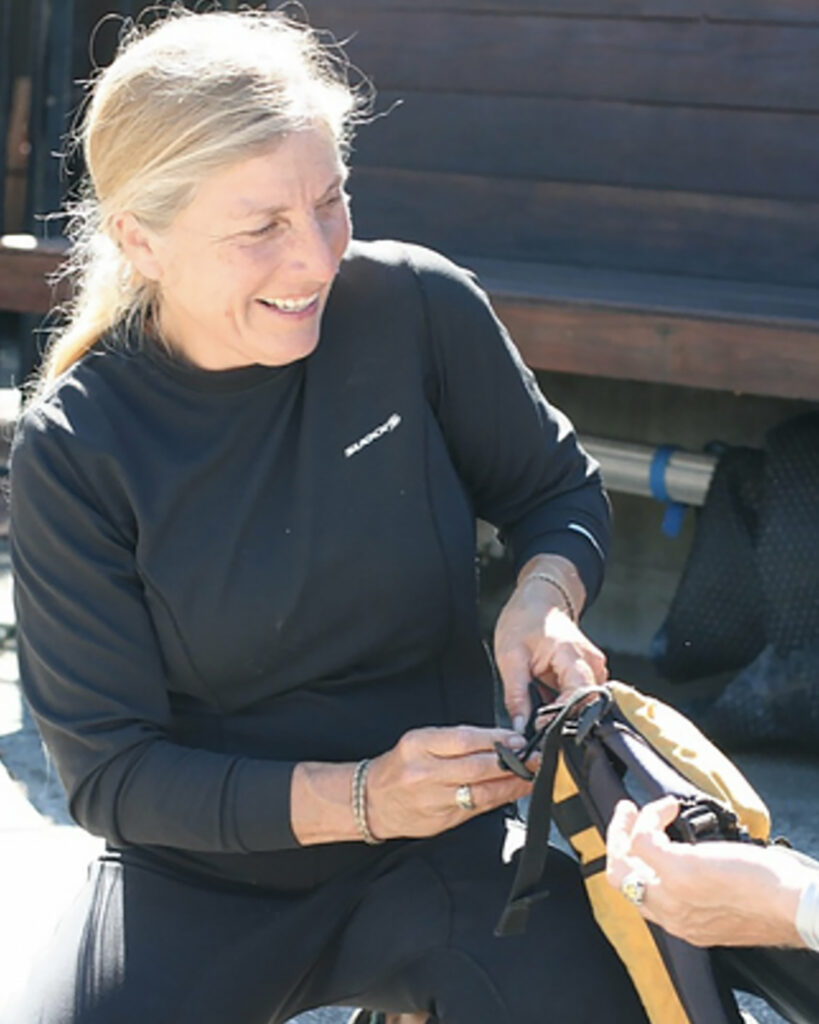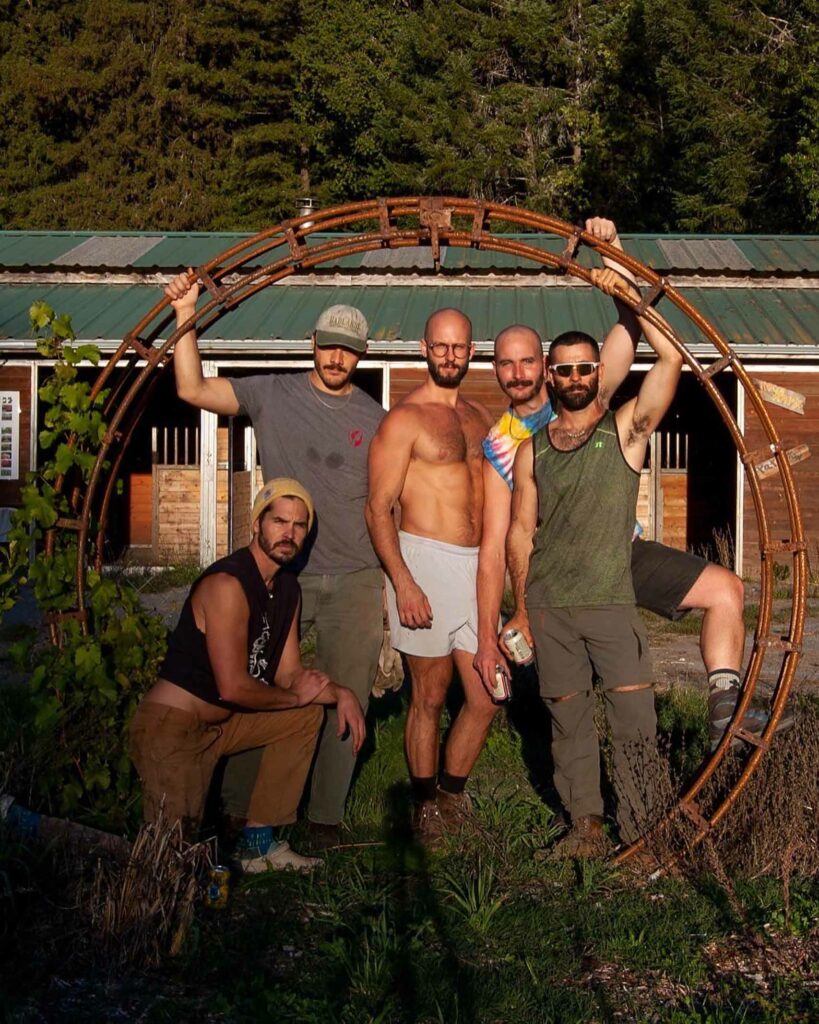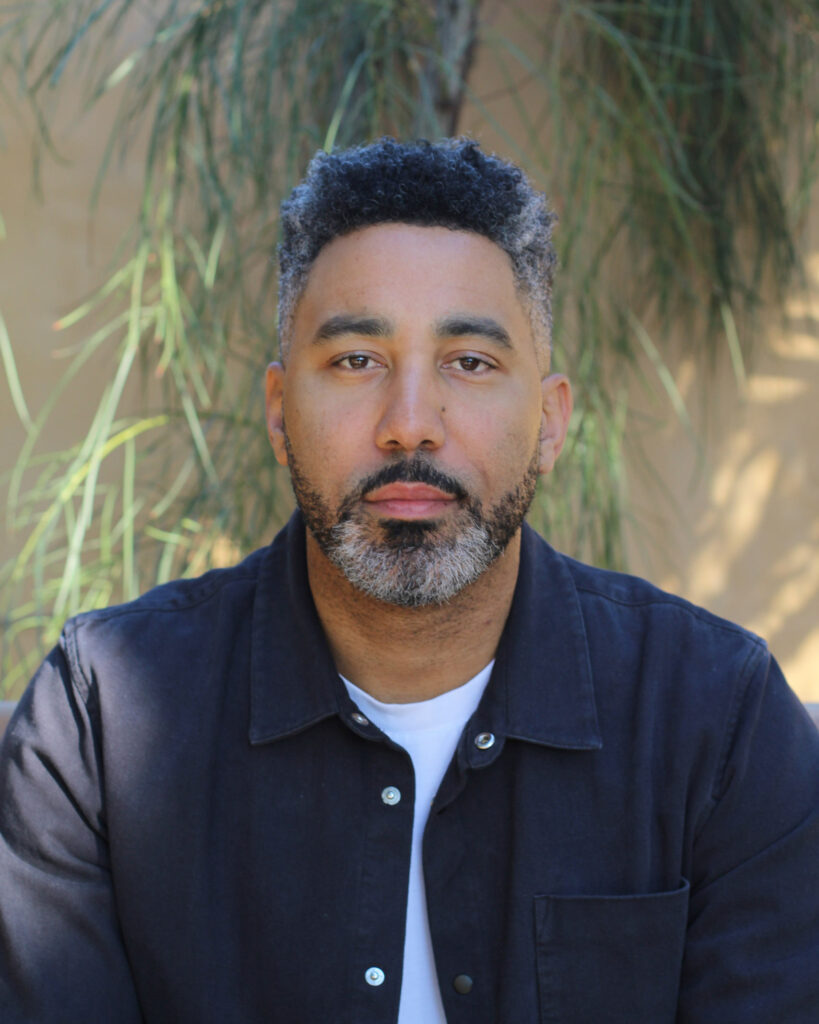As well as being the US’ most populous state, California is on most indices its most diverse, with no ethnic majority, the largest Native American population, and leading inclusivity of non-heteronormative lifestyles – all factors OutThere was thrilled to find as we explored the diverse businesses shaping the Golden State.
Temalpakh Farm | Coachella, Riverside County
“It’s amazing to be on ancestral land,” says Ronnie Vance. “And it’s important for me to carry on the work my mother started.” I’ve come to meet Ronnie, tribal council member of the Augustine Band of Cahuilla Indians on whose reservation we stand, to discover the vision she has realised – Temalpakh Farm. Almost a decade in the making, the farm is off-grid and entirely solar-powered, its entrance marked by seven huge feather artworks, acknowledging the seven remaining members of this tribe of the Cahuilla who were the first known inhabitants of the Coachella Valley some 3,000 years ago. Solar panels glisten in the sun and long sheets of tarpaulin protect delicate crops of cabbage, carrots and onions from the valley’s harsh desert conditions.
Long before California was known by its current eponym the region already had names. Every river, field and mountain had a name given to it by an indigenous tribe, proving they had been using and shaping the natural landscape for almost 10,000 years. More recently three catastrophic events scarred indigenous history in the state. Spanish missionaries arrived in the 1500s, colonising the native population. Next, the Gold Rush in the 1800s dealt two blows by both wreaking immeasurable destruction of the natural environment and establishing a hostile system of governance that legalised the genocide of native people. Within a few years, an estimated 80 per cent of the tribal population would vanish along with ancient traditions, stripping the native population of valuable knowledge and depriving future generations of a connection to their past.
Ronnie is one of the seven surviving Augustine Band tribal members who today dedicate themselves to attempting to save it from extinction. Her work continues that of her mother Mary Ann Martin, who in the mid-1980s began to transform the 500-acre reservation. Reclaiming the land, Mary Ann set up the small Augustine Casino that would ensure the financial stability of the tribe. Today, it is the largest employer in the Coachella Valley.

This story first appeared in The California Cool Issue, available in print and digital.
Subscribe today or purchase a back copy via our online shop.
Within a single generation, Mary Ann’s daughters, Ronnie and her sister Amanda, would set out an even more ambitious plan for part of the land, transforming it from an illegal dumping ground into California’s first solar-powered, organic farm approved by the Bureau of Indian Affairs.
Sitting on 50 acres, Temalpakh (which translates as ‘from the Earth’) Farm produces certified organic, sustainably grown fruit and vegetables. “There is no organic produce for miles around us here in the desert,” says Ronnie. “We chose to do this because we wanted to provide the community around us with good food. We wanted to share the food we grew with everyone.” Today the farm supplies fresh produce to restaurants, hotels and most of the households in the area. Open to the public, it also has a market selling other indigenous-produced foods, as well as toiletries and healing products based on traditional Indian formulations, and a smoothie bar.
But while Ronnie’s efforts have brought her mother’s dream of rebuilding a self-sufficient tribe a step closer, her journey also remains marked by sorrow. “While we feel fortunate to be able to farm again, restore water rights and reinstate tribal law, we don’t know how to do things the way our ancestors did,” she says. “We have no elders to turn to for guidance. Whenever we want to learn how to do something, whether that be farming or teaching our children, we go outside the tribe and seek the help of elders in other tribes. We are grateful to have that help, but it also makes us incredibly sad.”
Ortega’s – A Mexican Bistro | San Diego
Ortega’s has been part of the vibrant street tapestry that is Hillcrest, the neighbourhood at the heart of San Diego’s LGBTQI+ community, for more than 18 years. When co-owner Juan Carlos, who’s of Mexican descent, approached his friend John Haughland to run the tiny business his parents had started, as equal partners, neither could have foreseen the success and support it would enjoy, both from the local community and from diners from all over the city.
Ortega’s started small, with just 15 tables. Within just two years, and with the sophisticated, authentic Baja-style fare’s reputation routinely drawing two-hour queues for a table, expanding was a no-brainer. So when the next-door space became available, John and Juan bought it to add a full bar, private dining room and a further 60 tables upstairs. Now loyal patrons cross the city to tuck in.
“I was in law enforcement before this,” John says. “Things weren’t as inclusive as they are today and I had a lot of colleagues who hid their sexuality. So, to become a restaurateur, in the middle of my community, and be open and honest about myself and surrounded by others who are all living the same way has been a dream come true. And the restaurant also gave me the chance to exercise my creativity – I always wanted to become an interior designer.”
WaterTreks EcoTours | Sonoma County
Suki Waters, whose heritage is of Sonoma County’s Kashia Pomo tribe, enriches the kayak wilderness tours her company WaterTreks EcoTours offers in Sonoma Coast State Park with knowledge of local waterways passed down from her ancestors. She weaves this indigenous cultural wisdom into eye-opening nature experiences for her guests on and around the Jenner Estuary and Russian River.
“Local plants are very important and were historically used as medicine, as a food source and for building boats, baskets and other useful items. Along with local wildlife information, we include an ecological interpretation in every tour we offer,” says Suki, who has led excursions since 2000.
Whether guided tours or private boat rentals, WaterTreks’ outings include guidance for visitors on how best to respectfully view and enjoy the wildlife and nature within the marine protected area covering Russian River and the Sonoma Coast. Funds from WaterTreks’ tourism activities also support local schools and youth groups, whose engagement with WaterTreks as part of science field research is often their first hands-on experience of nature.
Says Suki, “Nothing is more important than ensuring our next generations have the skills to collect the information they need to make good decisions about their futures, and the future of our planet.”
Solarpunk Farms | Guerneville, Sonoma County
“An ecotone,” says Spencer Scott, co-founder with his husband Nick Schwantz of Solarpunk Farms, “is a place where two ecosystems meet, like an estuary where a river meets an ocean. And ecotones are some of the most dynamic and biologically diverse areas on earth.”
Stir in the word ‘queer’, and you might be describing the pioneering farmstead Spencer and Nick have established in the tiny town of Guerneville, 120km/75 miles from San Francisco where they lived and worked until July 2020. Geeky for years about sustainability, permaculture and regenerative land stewardship, they accelerated a long-term plan to swap desk-based city life for a hands-on, nature-based adventure when Covid struck, and were stunned to find the first property they considered, a 10-acre former horse ranch in mature redwood forest with severely degraded soil and depleted biodiversity five minutes from a town with a strong queer community, hit all their wishlist targets.
“We both work – remotely now – in environmentalism, myself for a climate non-profit called One Earth, while Nick has his own brand strategy consultancy for sustainability companies. We’re climate activists, essentially, and our dream is to create a whole cultural movement around community-based regeneration.”
Spencer and Nick’s project is named for the solarpunk philosophy explored in art and literature which imagines a more optimistic and equitable future achieved by radically resetting societal systems and forging a new, productive harmony with nature and each other. A restructured community model is key to this vision, and the rookie farmers have put shared effort and reward at the heart of their model from the start, leaning on their tight network of family and friends – and, increasingly, local volunteers with an interest in progressive land stewardship – to help them with often backbreaking farming and construction projects in return for food and board, a glow of shared ownership and celebratory times spent together in the farm’s ravishing natural surroundings. The results have in two years replaced barren, sandy land with a flourishing permaculture food forest, wildflower meadow, pollinator garden and rustic event space.
“It’s been wonderful to find how resonant and inspiring what we’re doing is to people,” Spencer says. “Our ultimate aim is to embody regenerative lifestyles, make them aspirational, and create a model, a place for demonstration and education so we can have an impact beyond our property. We’re currently working on structuring a non-profit to help Guerneville and Sonoma become more sustainable, and others to do similar things with their spaces.”
Spencer and Nick this year introduced ‘Work/Play weekends’, hosting volunteers in their house or tents, have hosted a year-long artist’s residence in return for a deeply groovy solarpunk mural and are constructing guest cabins around the property, which is within easy reach of abundant natural attractions and activities. Having built a large pergola this year, they have also begun hosting events, and are always keen to offer visitor tours. “The drive for sustainability can feel like a list of things you’re not allowed to do. We want to flip that script and show a future that is actually more enjoyable and beautiful for being regenerative and equitable.”
Have they perhaps discovered an ecotone where regenerative living meets queerness? “I think so,” Spencer says. “Because queers live in a liminal space that makes us less impeded by dogma, and more able to see alternative opportunities, to shift from traditional systems to something more dynamic, creative and loving. So our goal is to interface between queer and straight, city and rural, technology and nature. We want to embody that, explore how fun it can be to pick raspberries with your friends while dancing in cute outfits, then make dessert with the raspberries. Community joy has such power to bring people into a network where they support each other.”
LXV Winery | Paso Robles, San Luis Obispo County
Raised in Kolhapur, in India’s Maharashtra state, Neeta Mittal’s principal source of entertainment was the kitchen, and she grew up smelling and tasting fresh produce in the local markets from an early age. “When I’m asked how my journey in wine started, my heart immediately returns to those balmy markets of fragrances and flavour,” she says.
A defining moment for her vocational destiny came one evening while dining at LA’s The Bazaar by José Andrés. “I’d never met Andrés but it felt like everything that he was could be found in the smallest detail of that dinner. I knew in that moment that I wanted to create something that changes and inspires,” says Neeta, who today runs LXV winery in Paso Robles with her husband Kunal.
As a woman of colour in a predominantly white, male space Neeta feels that she’s been able to carve her niche due to the authenticity of her voice. “At LXV we have used what distinguishes us to define us. So the only acknowledgement I seek is that of my customers, and the only winery I compete with is my own,” she says. It’s this bold focus, over the past eight years, that has seen LXV’s become the highest-rated wine experience in Paso Robles.
Asked what LXV stands for, Neeta explains it’s derived from the 64 sutras of Indian culture that are believed to enrich life. The story of Neeta’s wine is her own 65th sutra. Hence LXV.
The Good House | Desert Hot Springs, Riverside County
Leaves whistle as they dance in the wind in the tree canopy that provides a welcome sanctuary from the desert heat at The Good House hotel and spa in Desert Hot Springs. With mid-century recliners and matching canary-yellow umbrellas around a crystal-blue pool, fed by one of the natural hot springs the area is famous for, the scene looks like a postcard from the 1960s.
Brian Edson, co-owner of the seven-room boutique hotel, greets me at the stocky, wooden, communal dining table beside the pool dressed casually in black jeans and hoodie. He’s friendly and passionate when he discusses what is his first venture into hospitality, and we soon decide a bottle of Good House rosé is in order.
“When I first opened The Good House, it was very important to me that I engaged the local community. All the staff here live only a few minutes away from the hotel,” Brian tells me. “I take great pride in having created a safe and welcoming environment. By actively supporting the local LGBTQI+ community I wanted to reflect that The Good House is a place where everyone feels respected, supported and can be themselves, free from judgement and discrimination.”
Everyone who works at The Good House approached Brian directly when the hotel reopened under his management. That’s how he found head chef Van Stevens, who has masterminded the deliciously simple menu. “When Van sent me his CV I noticed he had a string of experiences in some of the top restaurants and food-service businesses in LA. I met him and we talked about what he wanted out of life, and what his passions were. That’s when he told me about his pizza business,” Brian says.
Van had applied for a housekeeping position to support him while he developed his burgeoning business, Van’s Pizzas. But when he and Brian met they formulated a new plan that served them both. Brian recognised the value of Van’s experience as a line chef at Hotel Bel-Air under Wolfgang Puck, but understood that the pizza business was his passion. So they set up the kitchen at The Good House together with Van as head chef and food and beverage director. Van created a casual farm-to-table menu and contacted nearby Temalpakh Farm to provide his kitchen with organic fresh produce. Alongside this, all of Van’s Pizzas fare is today sold through The Good House.
As Van, a proud trans man, and many others of the staff belong to the LGBTQI+ community, Brian also decided to donate $2 per night from each guest stay to support the work of the LGBTQ Community Center of the Desert in neighbouring Palm Springs, which provides an open and welcoming space to empower the community in the Coachella Valley.
“Brian is just the ally I needed. He’s engaged, supportive, and also big on hiring Desert Hot Springs locals,” says Van. “This is one of the first places I’ve worked where there are no awkward questions. When moving to any new city I always look to find community and was able to do that through the Borrego Health and Stonewall here who provide trans-inclusive healthcare to the LGBTQI+ citizens of Desert Hot Springs and surrounding desert cities. It’s one of the things that’s made living here as a trans chef much safer and easier.”
With The Good House the only black-owned hotel in the area, which also runs one of the only LGBTQI+ led food programmes in the country, the positive impacts of Brian’s super-inclusive approach are palpable. And chatting with the relaxed, friendly staff around the hotel or while dining on organic food around the communal table, it seems they’re as happy to be here as we are to be their guests.
www.temalpakhfarm.com | www.ortegas.com | www.watertreks.com | @solarpunkfarms | www.lxvwine.com | www.welcometothegoodhouse.com
Words by Rupert Mellor and Demi Perera
Photography by Esperanza Mendez, Neeta Mittal, John Haughland, Suki Waters and courtesy of Temalpakh Farm and Solarpunk Farms



























